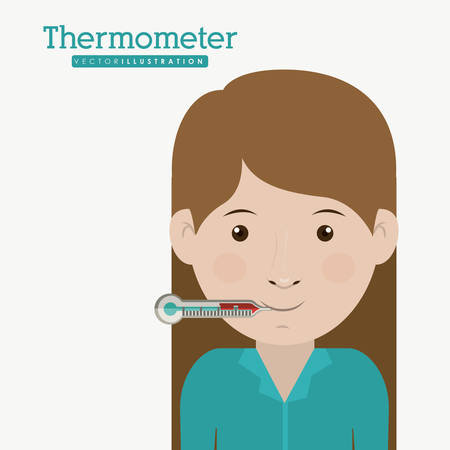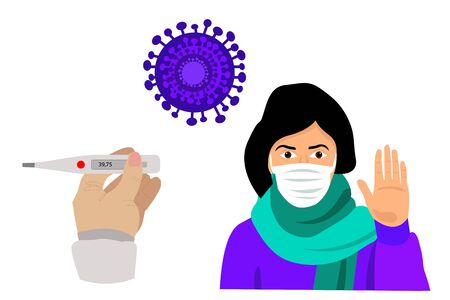1. Understanding Dadi-Nani Remedies for Cold & Cough
When it comes to caring for children during a cold or cough, Indian families often turn to time-tested solutions passed down by grandmothers—fondly known as Dadi or Nani. These home remedies are more than just quick fixes; they are a legacy deeply rooted in Indian households, blending tradition, Ayurveda, and local wisdom. For generations, Dadi-Nani remedies have been trusted for their gentle, natural approach to easing common ailments in kids without relying on harsh chemicals or unnecessary medication. From warm turmeric milk (haldi doodh) to soothing ajwain potli (carom seed pouch), every Indian household has its own set of tried-and-tested recipes. The faith in these remedies stems not only from their effectiveness but also from the emotional comfort and familial bonding that comes with them. In a country as diverse as India, where climate and lifestyle vary widely, Dadi-Nani’s solutions have adapted to local needs, making them an enduring part of Indian parenting culture.
2. Popular Home Remedies Used by Indian Grandmothers
Indian grandmothers, lovingly called Dadi and Nani, have trusted home remedies for generations to provide relief from kids’ cold and cough. These traditional methods use locally available kitchen ingredients and are deeply rooted in Indian culture. Here’s a practical guide to the most common remedies:
Tulsi Kadha (Holy Basil Concoction)
Tulsi leaves are widely used in Indian households due to their immunity-boosting properties. Dadi-Nani usually prepare a kadha (herbal decoction) by boiling tulsi leaves with ginger, black pepper, and a little honey. This drink helps soothe sore throats and clear nasal congestion.
Haldi Doodh (Turmeric Milk)
Known as ‘golden milk’, haldi doodh is a bedtime staple in many Indian homes. A pinch of turmeric mixed with warm milk acts as a natural anti-inflammatory agent, helping to reduce cough and promote restful sleep for children.
Ajwain Potli (Carom Seeds Pouch)
For blocked noses or chest congestion, Dadi-Nani often heat ajwain seeds in a small cloth pouch (potli) and let kids inhale the vapours or gently press it on their chest. Ajwain’s aromatic oils help ease breathing difficulties.
Honey
Honey is commonly given to children above one year of age in India for its soothing effect on sore throats and to suppress cough. It is either offered plain or mixed with ginger juice or lemon for added benefits.
Quick Reference Table: Common Dadi-Nani Remedies
| Remedy | Main Ingredients | Common Usage |
|---|---|---|
| Tulsi Kadha | Tulsi, Ginger, Black Pepper, Honey | Sore throat, Nasal congestion |
| Haldi Doodh | Turmeric, Milk, (Optional: Black Pepper) | Cough, Better sleep |
| Ajwain Potli | Ajwain seeds, Cloth pouch | Nasal/chest congestion |
| Honey | Pure honey (sometimes with ginger/lemon) | Sore throat, Cough relief (for kids >1 yr) |
Cultural Note:
Dadi-Nani’s remedies reflect the wisdom of Indian families. They prefer gentle, natural approaches before turning to modern medicine, making these home solutions an integral part of every Indian child’s upbringing.

3. Benefits of These Remedies for Kids
Indian families have long trusted home remedies passed down by Dadi-Nani (grandmothers) when it comes to managing cold and cough in children. These natural solutions offer a host of benefits that make them a preferred choice across generations.
Gentle on Young Bodies
Home remedies such as honey with tulsi, ajwain steam, or turmeric milk are known for their mildness. Unlike some over-the-counter medicines, these natural ingredients are less likely to cause side effects, making them suitable for kids’ delicate systems.
Easy Availability at Home
Most Indian households already stock common kitchen staples like ginger, black pepper, jaggery, and carom seeds. This makes preparing remedies quick and convenient without the need for special purchases or trips to the pharmacy—something highly valued by busy parents.
Cost-Effective Solutions
Since these ingredients are usually part of daily cooking, using them as remedies is economical. Families do not have to spend extra on expensive syrups or medicines.
Cultural Comfort and Trust
The comfort of using time-tested remedies fosters a sense of cultural connection. Children often feel reassured by the familiar tastes and rituals associated with Dadi-Nani’s care, which helps in both physical healing and emotional well-being.
Perceived Effectiveness
Many Indian parents believe these remedies work well because they have witnessed positive results over generations. While scientific evidence may vary, the widespread use and anecdotal success stories continue to strengthen trust in these traditional practices.
4. Precautions for Parents: Safety & Dosage
When using home remedies by Dadi-Nani for kids’ cold and cough in India, it’s essential for parents and caregivers to follow certain precautions to ensure safety and effectiveness. While these traditional remedies are trusted in Indian households, mindful preparation and usage can help avoid unwanted side effects and maximize benefits.
Tips for Safe Preparation & Administration
- Hygiene First: Always wash your hands and use clean utensils while preparing any remedy, whether it is honey with tulsi, ajwain steam, or turmeric milk.
- Fresh Ingredients: Use fresh, good-quality ingredients sourced locally to maintain potency and reduce the risk of contamination.
- Correct Preparation: Follow traditional recipes accurately—over-boiling herbs or spices can reduce their effectiveness.
Age-Appropriate Dosages
Doses suitable for adults may not be safe for children. Adjust quantity based on age as per the table below:
| Age Group | Recommended Dosage | Popular Remedies |
|---|---|---|
| 6 months – 1 year | A pinch (for powders); 1–2 tsp (for liquids) | Tulsi water, diluted ginger juice (consult doctor first) |
| 1 – 5 years | ¼ – ½ tsp (for powders); 2–4 tsp (for liquids) | Ajwain-infused water, turmeric milk (low concentration) |
| 5+ years | ½ – 1 tsp (for powders); 2–3 tbsp (for liquids) | Honey-tulsi mix, steam inhalation with ajwain |
Allergy Checks & Sensitivities
- Patch Test: For topical remedies like mustard oil massages, do a patch test on a small area of skin before applying widely.
- Avoid Honey for Infants: Never give honey to children under one year due to the risk of botulism.
- Check Family History: If allergies to spices or herbs run in the family, consult your paediatrician before trying new remedies.
- Lactose/Gluten Intolerance: Modify recipes if your child has known intolerances—for example, use lactose-free milk for turmeric milk.
When to Consult a Doctor?
- If your child develops high fever (>100°F/38°C), difficulty breathing, persistent cough beyond one week, or refuses fluids/food.
- If there are signs of an allergic reaction such as rash, swelling, vomiting, or diarrhoea after giving a remedy.
- If symptoms worsen despite home treatment or you are unsure about the right dosage/preparation method.
Your Role as a Caregiver
The wisdom of our Dadi-Nani is invaluable, but each child is unique. Stay vigilant, trust your instincts, and always keep your paediatrician in the loop when trying any traditional remedy at home.
5. When to Seek Professional Medical Help
While Dadi-Nani ke nuskhe are cherished and often effective for mild cold and cough in kids, it is crucial for Indian parents to know when home remedies are not enough. Safe parenting means staying alert to warning signs and acting promptly to protect your child’s health.
Recognising Red Flags
If your child’s symptoms worsen or do not improve after a few days of home remedies, it’s time to be cautious. Key red flags include:
High Fever
If your child has a persistent high fever (above 101°F or 38.3°C) that does not subside with basic care, consult a doctor immediately.
Breathing Difficulties
Watch for fast breathing, wheezing, chest indrawing (sucking in of the skin between or below the ribs), or noisy breathing. These are serious and require urgent medical attention.
Persistent Cough or Wheezing
If coughing lasts more than a week, becomes severe, or is accompanied by vomiting, seek professional help.
Lethargy or Refusal to Eat/Drink
A sudden drop in activity level, excessive drowsiness, refusal to breastfeed or drink water may signal something more serious than a simple cold.
Other Concerning Symptoms
Look out for bluish lips, dehydration (no tears while crying, dry mouth, sunken eyes), continuous irritability or inconsolable crying.
Safe & Informed Parenting Advice
Indian families value traditional wisdom but should balance it with timely medical intervention. Home remedies work best as supportive care but should not delay necessary treatment. Always keep emergency contacts handy and trust your instincts—if you feel something is not right with your child’s health, do not hesitate to consult a paediatrician or visit the nearest hospital.
6. Bringing Tradition and Modern Medicine Together
In India, the wisdom passed down by our dadi-nani (grandmothers) is deeply cherished, especially when it comes to caring for children during common illnesses like cold and cough. These home remedies—such as tulsi ginger tea, ajwain potli, or honey with warm water—have been trusted for generations. However, in today’s world, it is important to blend this traditional knowledge with modern paediatric care for the best outcomes.
Respecting Dadi-Nani’s Remedies
Our elders’ remedies often use natural ingredients found in every Indian kitchen. They provide comfort, are usually safe for mild symptoms, and connect children to their roots. Listening to dadi-nani not only helps in quick relief but also preserves family traditions and instills a sense of cultural identity in kids.
When to Seek Modern Medical Help
While home remedies can be effective for mild colds and coughs, it’s crucial to recognize when a child needs professional medical attention. Signs such as high fever, breathing difficulty, persistent cough, chest pain, or lack of appetite should never be ignored. Consulting a paediatrician ensures your child receives timely diagnosis and treatment according to modern medical standards.
Encouraging a Balanced Approach
The key is balance—use dadi-nani’s tried-and-tested remedies for initial symptoms and comfort, but remain open to seeking a doctor’s advice when needed. Educate family members about the importance of vaccinations and regular health check-ups alongside using traditional home care methods. This approach respects our heritage while prioritizing children’s health and well-being in today’s India.

